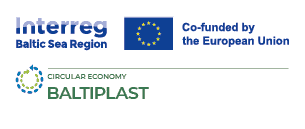
Interactive Lesson on Waste Sorting, Plastic Waste and its Impact on the Environment
01 March 2024
Our project expert in the field of plastic pollution reduction in the context of science and education has conducted several interactive lessons for schoolchildren on waste management, plastic waste and its impact on the environment – at Daugavpils Valstspilsētas Secondary School, Daugavpils Zinātņu Secondary School, Daugavpils Vienības Primary School, as well as Daugavpils Centra Secondary School. Thank you to the schools and teachers for their interest! We invite teachers to register their students for a lesson on waste management, plastic waste and its impact on the environment. The duration is 1 lesson. Interested teachers are invited to write to jolanta.reca-laze@daugavpils.lv.

Together with the project partner “Baltic Environmental Forum Latvia” (Riga), this year a practical activity “How to reduce plastic use in everyday life?” is being implemented in several Daugavpils schools, which involves testing a plastic waste reduction tool developed within the BALTIPLAST project.
On 5th February, 2024 a seminar on waste management was organised for heads and vice-principals of educational institutions. The participants were informed about the latest developments in waste management in the world, in the country and in our city, as well as discussion was held about waste sorting in schools.
The aim of BALTIPLAST is to inform the public about the measures that can be implemented to reduce single-use plastic waste in households, offices and on the streets and to increase the amount of recycled plastic, thus contributing to the reduction of plastic waste in the Baltic Sea Region. BALTIPLAST focuses on the responsible use of resources, changing mindsets, and consumer behaviour.





